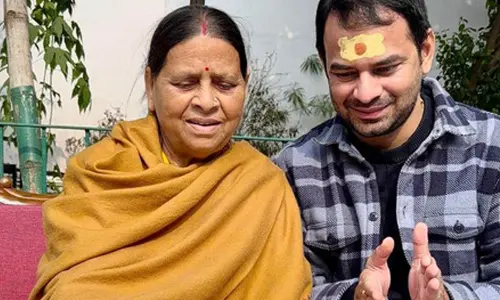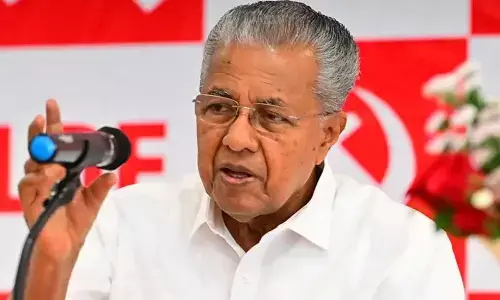Pre-Budget Expectations from the Startup Experts of Plix, Prozo, HealthCube, and More

For representational purpose
Despite the continued challenges posed by the pandemic, we witnessed good recovery momentum across industries in 2021. The Government of India must focus on the technology-driven transformation of the country in the years ahead, and the union budget is a great starting point.
This article is with regards to the upcoming Union Budget that will be presented on 1st February 2022, we mentioned quotes from Leading Startup Experts and their take on the upcoming Union Budget 2022.
Abhishek Goenka, Head and CIO, RPSG Capital Ventures An early-stage consumer venture capital fund with a focus on investing in the D2C ecosystem
We have had a fantastic 2021 from the startup ecosystem perspective, and with further Government support, this growth could reach new heights. This could include simplification of GST rules with respect to availing of credits and monthly procedural requirements. Also an offset of capital gains by investing in other startups could help boost investments and contribute to the growth of the overall startup ecosystem.
Karan Shaha, Co-Founder and CEO, Vahak
India's largest online transport marketplace
The Indian logistics sector has grown by leaps and bounds and will play the role of enabler in achieving the goal of becoming the world's third largest economy by 2030. As we enter the new normal of post-pandemic businesses, and scaling up of domestic manufacturing, the logistics sector requires major investment from the government in infrastructure building. Expressways, warehousing hubs, inland waterways as well as dedicated freight corridors are some of the major and urgent infrastructural needs that will support the manufacturing and retail sectors. Greater funding has to be provided for rural connectivity, and setting up of technology-driven logistics operations across the country. Automation of various paper-based processes, funding support for adoption of EVs by transporters and simplification of business processes are some of the other major improvements that we expect the government to pay attention to, in the upcoming budget.
Abhijit Shanbhag, President and CEO, Graymatics
A cognitive multimedia processing company
The Government of India must focus on technology-driven transformation of the country in the years ahead, and the union budget is a great starting point. We are now moving into an era where touchless technologies, remote monitoring and surveillance have become necessary in various use cases. In this regard, companies that focus on developing smart technology driven solutions need to be backed by the authorities. Supporting research and software development, and manufacturing of technology-driven products through funding and infrastructure is a key need today. We hope that through higher budgetary allocation for smart city projects and supporting innovative tech such as video AI, the government will move forward to the goal of digital India.
Tapan Barman, Co-Founder and CEO, Mihup
A leading conversational AI platform
Despite the continued challenges posed by the pandemic, we witnessed good recovery momentum across industries in 2021. Now, it is time to build further through right financial support in the Union Budget. With Aatmanirbhar Bharat becoming a clarion call, it is time to further simplify the process of taxation and investment. Indian tech startups did very well in the year gone by, and now the need is for incentive and financial support for developing innovative technologies, software and solutions that can be beneficial for different sectors in capacity building and efficiency. Governmental support to startups will generate more revenue and employment across the country. As India aims to become one of the leading manufacturing hubs in the world, we must also pay great attention to the software and technology development sector. Just like the IT and outsourcing industry, Indian SaaS companies will generate a lot of foreign exchange through export of technology products. The government must also make budgetary considerations for infrastructure and talent development for the IT industry alongside financial and regulatory support.
Ankit Kedia, Founder and Lead Investor, Capital A
A venture fund for seed to early-stage meaningful startups
Private sector investors rallied behind the Indian startups in 2021, and the momentum augurs well for the plans to become a $5 trillion economy. However, the government needs to play a much bigger role in supporting investments from foreign countries. One of the major obstacles today is the lack of ease-of-doing-business. India is still not in the top 50 countries of the world on the global list. Our aspiration to be one of the top 3 economies has to be complemented by being one of the best business destinations in the world. We expect the government to take steps to boost technology-driven startups and simplify the FDI processes across the sectors.
Varun Goenka, CEO and Co-Founder, Chargeup
Bharat's largest battery swapping network
Sustainable transportation needs have seen a lot of developments in the EV sector in India. However, the pace of growth is not adequate and it is expected that the government will declare the EV industry to be a priority sector in the Union Budget. So far, various companies have launched electric 2-wheelers with a focus on last-mile connectivity. However, with the growth of business and commercial activities, there has to be a greater emphasis on last-mile delivery. This year, we anticipate a significant growth in the B2C as well as B2B segments. Food delivery companies such as Zomato are moving towards a 100% EV fleet for their operations, and some of the cities such as Gurgaon have declared EV only zones. We expect the government to take policy measures to build more EV zones that will drive the adoption towards such vehicles. Further, strengthening of initiatives such as infrastructure and financial support to EV manufacturing, charging and battery swapping service providers to augment operations are also anticipated in the upcoming budget.
Runam Mehta, CEO, HealthCube
Transformative Indian healthtech company designing and manufacturing point-of-care diagnostic devices
The Indian health-tech sector proved its potential to the fullest in 2021 and played a major role in containing the pandemic. India's dependence on medical device import is one of the reasons behind the lack of adequate technology development and deployment across the country. We hope the government will make sufficient budgetary allocations towards development of new tools and technology and manufacturing of cutting-edge portable diagnostic, remote monitoring and telemedicine equipment. There is also a need for government-private collaboration in development and usage of advanced software-based solutions in rural healthcare delivery and preventive diagnostic services. Investments in the arena should be simplified, and there is an urgent need to incentivize and provide infrastructural support to companies developing the right solutions. Reduction of import duty on critical components required by the device manufacturers is another urgent area of attention. We hope the government takes care of these concerns and backs domestic medical device manufacturers.
Deepak Nair, Co-Founder and COO at 10club
An e-commerce aggregator that acquires digitally native businesses with the aim of growing them 10x
India has seen a phenomenal digital transformation in the last couple of years. In 2022, we foresee continued growth in categories such as home, fitness and sport, which we are excited to see unfold. Accelerating the "Make in India" initiative and investments in ramping up the nation's supply chain capabilities along with credit support for MSMEs will stimulate the economy at multiple levels.
Arun Bagaria, Co-Founder, TravClan A disruptive B2B startup travel tech start-up
During the last two years, the travel industry in India has been strongly impacted by the pandemic. The fact that international tourism which is a key revenue source for all domestic as well as international travel agents in India, remains suspended, has caused financial stress for most players. It is widely believed that 2022 will see resumption and steady growth of the entire travel sphere. However, the need of the hour is for the government to take steps that encourage people to travel, and help hospitality and travel companies to earn more revenues. Waiver of GST on travel services and financial support to hotels/transportation providers can be a major boost to the travel sector in India. Startups can be incentivized for tech adoption and provided with financial support to develop travel technologies and innovative service platforms. The Government of India also needs to make allocations towards promoting India as a post-pandemic global travel destination.
Rishubh Satiya, Co-Founder, Plix
A fast-growing clean plant-based nutrition brand for daily wellness and strength
The D2C ecosystem has enabled a large number of sustainable, small-scale companies, manufacturing units and startups to enter the retail landscape and compete with large multinational companies which have been dominant so far. The ability to sell online and through brand outlets without the constraints of conventional multi-layered ecosystems, democratizes the market. It also gives brands such as Plix the ability to reach the target audiences as a sustainable brand offering clean, plant-based nutrition to consumers. The upcoming union budget is going to be crucial as the Indian business community is expecting stronger recovery and growth this year. We expect the government to announce strong financial support to the startups and D2C brands in sync with its policy to promote domestic manufacturing. We also expect lowering of GST or other benefits for brands that offer green wellness and nutrition products and support sustainability initiatives.
Ashivini Jakhar, Founder and CEO, Prozo
An e-commerce enabler & accelerator start-up
India's logistics sector is the dark horse that will propel India towards achieving a $5 trillion economy by 2024-2025. India's logistics spend as a % of GDP is still among the highest and stands at 13-14%. For developed economies like Japan and USA, this stands at 8-10%. A host of direct and indirect measures are needed to reduce logistics cost, which in turn will fuel the growth of both domestic consumption and exports. Interventions like further easing out norms (e.g. warehouses still need factory license) & processes for setting up warehouses (a streamlined, single-window clearance systems) within the main cities, esp. for setting up Last mile hubs & dark stores, as well as outside city premises for setting up fulfillment centers, has a huge potential to boost the economy. Establishing logistics hubs that facilitate on-demand warehousing for small operators and startups, especially in the non-metro city regions should be provided with funding and easy approvals. Simplifying the land acquisition process and digitizing land records will help in setting up Grade A warehouses. Finalization and effective implementation of the National Logistics Policy, along with focus on creating a skilled workforce for the supply chain industry is important. Indian supply chain startups offering innovative & integrated logistics services should also be given a favorable status in government supply chain digitisation projects, therefore promoting innovation e.g. CWC (Central Warehousing Corporation) could digitize all their warehouses leveraging such services thus further boosting Agri & other supply chain reforms. Other major interventions like easing cross-border commerce, more capex investment in cold storage and promoting the deployment of electric vehicles in the logistics sector will enable the growth of this sector and economy.
Sanjay Vinayak, Founder and CEO, Connect and Heal An integrated health-tech company providing end-to-end coordinated care and health cover
The Indian healthcare system has been dealing with its biggest challenge. As we move into a scenario where COVID-19 could become endemic with highs and lows from time to time, it is important to ready the ecosystem for the future. In this context, we hope the Government of India will take some key fiscal steps, beginning with simplification of GST conditions for all healthcare providers. Any organization delivering, facilitating, or coordinating healthcare services should be provided exemption from GST even if they are not clinical establishments themselves. Streamlining of these issues is critical for modern healthcare companies. Apart from this, the primary healthcare sector continues to suffer from financial challenges. There is a need to qualify primary healthcare credit as priority sector lending for Banks. This is essential as the private sector needs to invest heavily into building a robust infrastructure. Another important area to focus is lower tax regime for the healthcare sector to encourage capital inflow.
Kunal Vaid, Founder - Resham Sutra
"We would like to see a more inclusive budget with higher levels of focus on women's development and on rural employment and livelihood generation, as these sectors currently constitute over 50 percent of the Indian economy. New and fresh ideas are needed to improve income opportunities and to increase the productivity of rural women in the poor and underserved parts of the country. Additionally, the Government must focus on the creation of non-agricultural income streams for bettering livelihoods for the rural women, as well as increase investments in community rural livelihood infrastructure building and development and furthering training infrastructure, including skill training for aspiring micro-entrepreneurs in rural India as well as technical training to the rural producers.
We also strongly feel that the scope of existing schemes/initiatives like textile mega parks need to be broadened and implemented for distributed rural production centres and producer companies -- as they are the backbone of the Indian textile industry. Furthermore, the Government should address the need of setting up village-level procurement centres, and prioritize on ensuring easier access to affordable credit for all rural women textile producers with minimum documentation. To this end, including the implementation of schemes like the PM Kisaan to be in the name of women, irrespective of land ownership can be a great step. Lastly, I would like to suggest that the Government should simplify the process of formation of rural-based producer companies and allow partial shareholding to promoter organizations. Such initiatives will go a long way and have a multiplier effect on rural incomes and the economy at large, and these have the potential to further reduce the need for mass migration to urban areas for low-paid, unskilled work."














